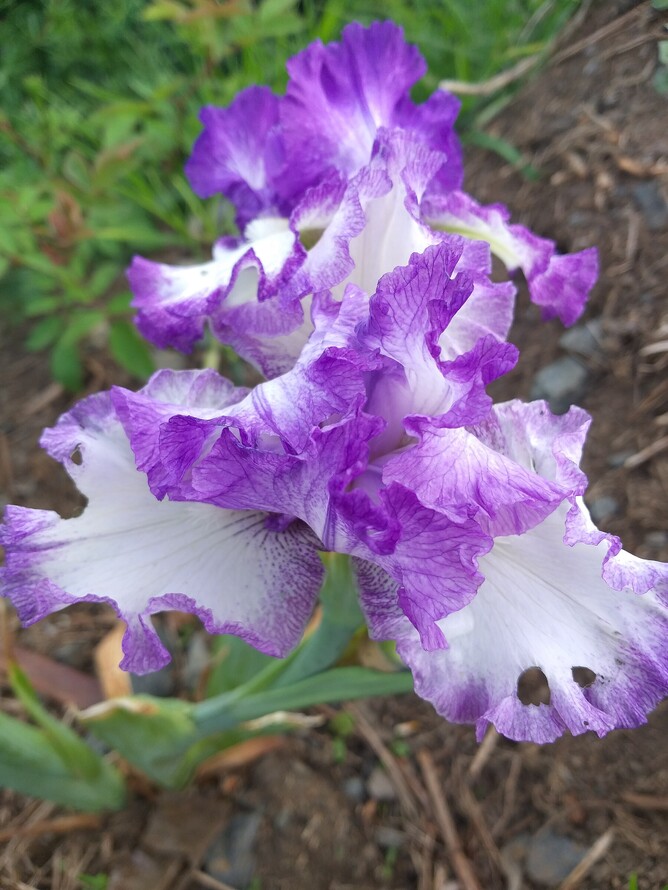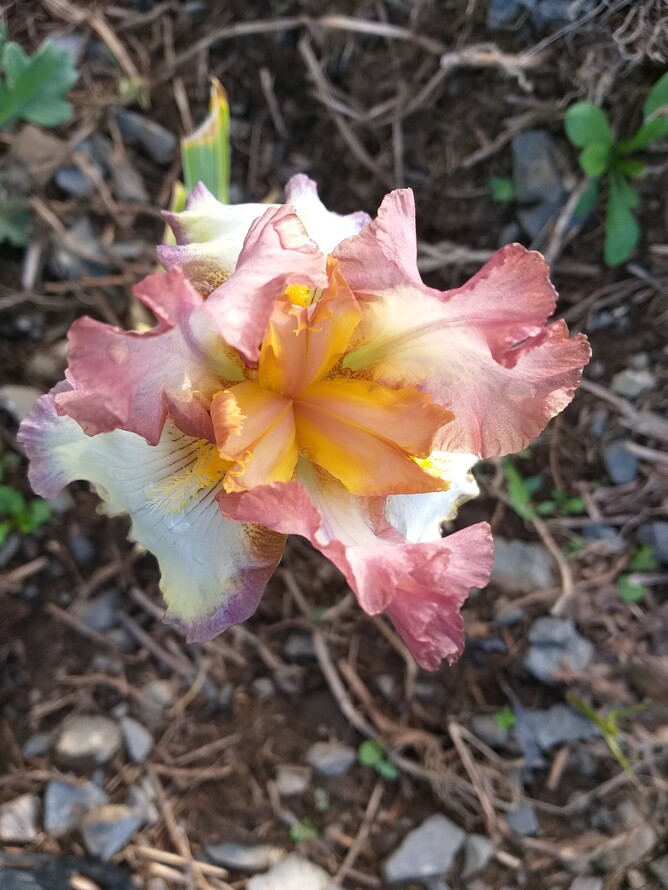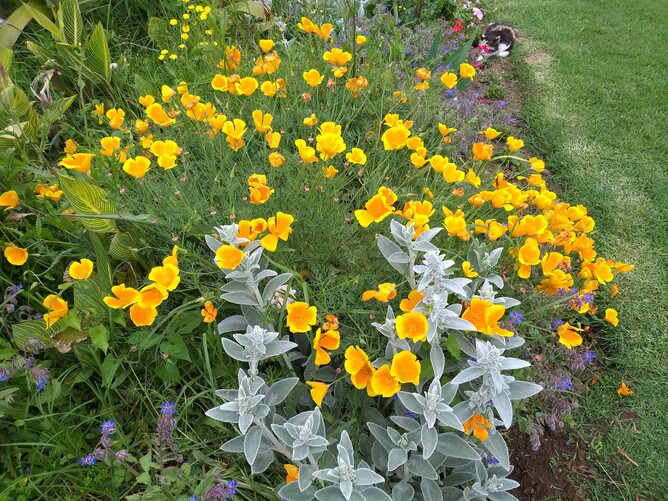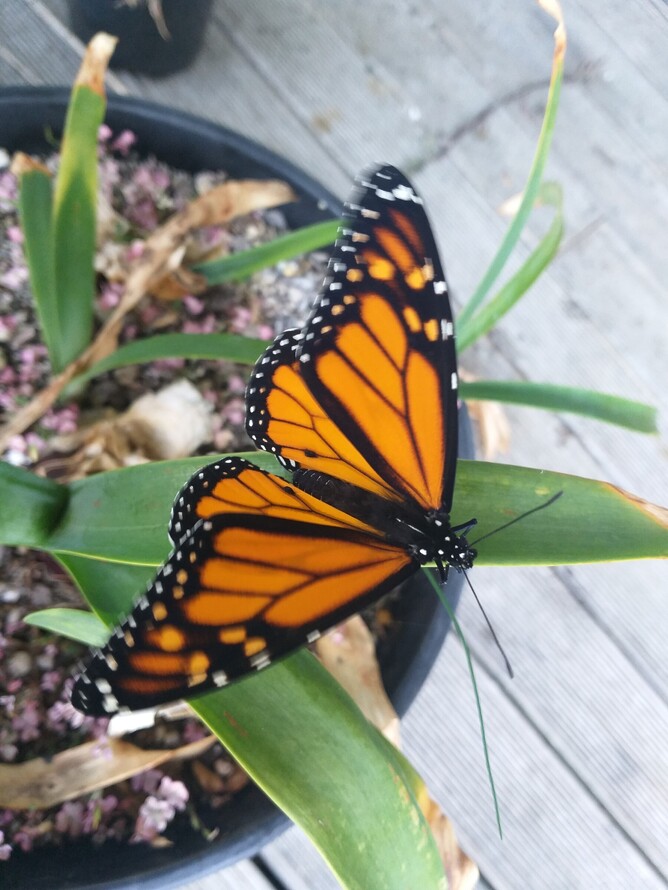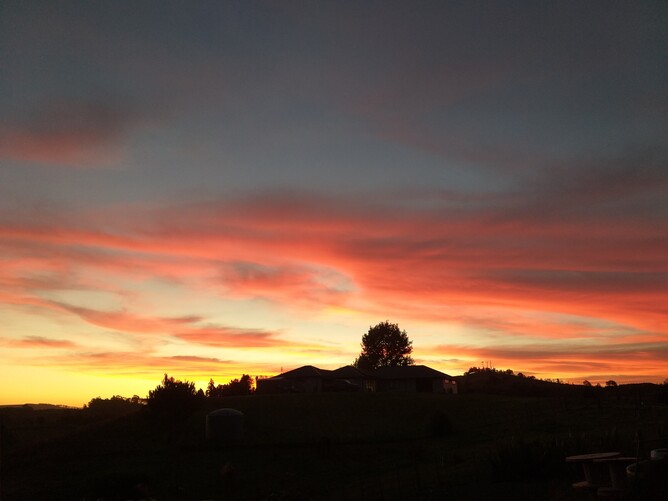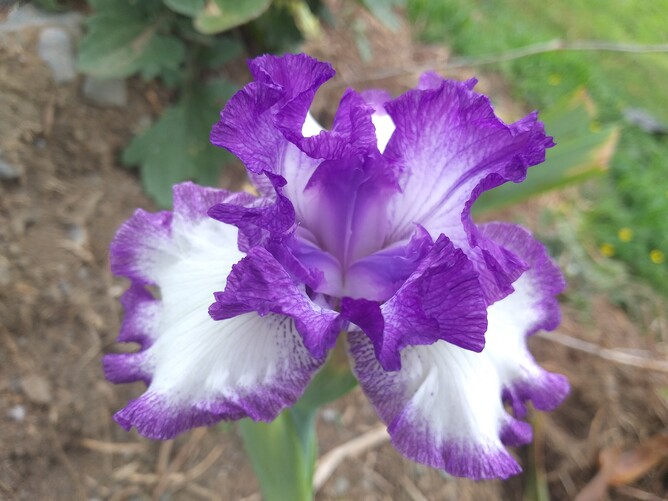Gardens are works of art created by talented people. 17th century Philosopher Francis Bacon in his 1625 essay On Gardens, wrote that they are 'the purest of human pleasures - the greatest refreshments to the spirits of man.' Our gardens heal us. They are miracles in repose.
Large or small, they can be charming, eccentric, controversial even. But every garden is beautiful in its own way, has it's own unique personality and character, its own story to tell. As our private sanctuaries our gardens are magical spaces which bring us the benefits and delights of relaxation and beauty, and let nature soothe our souls.
I believe gardening is indisputably an art form, one of the most difficult, because gardens are living works of art, constantly growing, changing, evolving. We are not in control of them. They are as much a reflection of their environment as they are of the gardeners who express themselves through them.
Gardening to me is sustainable art. My aim as both an artist and a gardener is to inspire others to connect and collaborate with nature on a journey of sustainability. To grow food sustainably to create food sovereignty. To support the existing Waikato ecosystems by cultivating beautiful sustainable wilderness and cultivated gardens to provide habitats for endemic plants, birds, beneficial insects and wildlife thereby increasing the natural biodiversity of our Waikato river ecosystems. My aim is also to bring people together using gardening as an art form, connecting with others who have a mutual love of gardening and nature.
Immense trial and error, disappointments and dreams go into the learning curve to becoming a good gardener. Gardening is hard work. That's why as a child it never interested me. I often read articles written by celebrity or professional gardeners or garden designers who were gardeners from babyhood - not me.
My parents had beautiful gardens. My father grew the most divine tasting fruit and vegetables, while my mother cultivated gorgeous flower beds. Despite admiring their talent and the beauty they bought into the world, as a child helping them garden I'd be overwhelmed watching the back-breaking amount of work they poured into maintaining their gardens. I swore - never me.
Until I had children. At 7 years old my eldest daughter became creatively inspired by flowers in a big way, obsessed with taking flowers to school for all the teachers she fell in love with. Not having a garden I had to buy flowers from the supermarket, and when I couldn't afford them she would cry her little heart out from the minute she woke up, all the way through breakfast and while exploring every garden on the morning walk to school, imploring why can't we have a garden too?
That's how I became a gardener - and the joke of my neighbourhood. So where did I learn to garden? The same place a bookaholic learns everything - the library of course. I read every book on every style and form of gardening I could get my hands on. Until I got banned from Auckland libraries when they discovered I'd taken 88 books out.
The librarians were furious. I was not only fined, ordered to return all 88 books, banned from taking any books at all out for a whole month, they not only set my limit to taking 10 books out at any one time, they set my limit to 2 books per any one subject at any one time. I could only take 2 books on gardening out at once. Bookaholic hell!
So how did I become the biggest gardening joke of my neighbourhood? Our neighbours of the first home we bought were more affluent than we were. I started composting long before it became fashionable - back in the day when no-one in the cities even knew what the word compost meant. While my neighbours filled their gardens with expensive soil mixes, additives, fertilisers, and mulches they bought by the truckload - they could afford to - I couldn't - I visited local farms to bring home rubbish bags full of chicken and horse manure, which I composted with car loads of old hay or leaf litter from the local green tip, where I could get it all for free. So in the beginning my gardens looked like wild unruly massive compost heaps.
I was an inexperienced highly experimental gardener keen to try anything and everthing in my attempts at learning how to become a good gardener. I tried gardening by the moon, back in the day when no-one else did because everyone thought it was just plain weird, and failed. I fell in love with biodynamic gardening, which no-one I knew had ever heard of, and failed. In the beginning I knew nothing and failed at everything. My neighbours laughed, stuck their noses in the air, and told me I would always be doomed to failure.
But I never gave in. I was primarily a self-taught gardener. Still am. I learned by observation. In the end I had the last laugh. In time my wild, unruly, compost gardens filled with chicken shit, horse shit and green shit from the green waste tip grew magnificently. Back in the day when city gardeners knew nothing about symbiotic relationships, sustainability or regenerative gardening which used natural methods to improve soil fertility, I was light years ahead of everyone else. It just took time and patience for the results to surface.
My advice to all who ask me for gardening tips is experiment and be patient - If you fail keep trying. Gardening has taught me what works in one garden may not work in another. We don't actually grow plants - we provide the necessary conditions in which plants grow themselves. Plants don't give a toss what the gardening rules are, or what the glossy gardening books and magazines say, they don't give a stuff about expert gardening lore or wisdom, they don't care how educated you are or how many PhD's you have. They make their own minds up if they want to grow or not. They live to defy us.
They don't care if you've fished them out of the bargain bin and paid peanuts for them at the cheapest nurseries, or if you've spent a fortune buying them from the most expensive exclusive plant shops in the most uppity suburbs. Plants are hugely individual. They're not snobs. They don't judge you. All they care about is how you treat them. Give them what they need and treat them well and they'll do their best to grow for you. Plants are remarkable. Of all the life forms on this planet it is plants I respect the most. My respect for them is infinite. Without them all life on earth would cease to exist. They are the beginning and end of life as we know it. I could not live without plants. Francis Bacon was spot on - gardening truly is the greatest of human pleasures.
I call my garden Atea - the Maori word for heaven. Located in Pokeno not far from the Waikato river, Atea occupies 33 acres of native Totara, Kanuka and Manuka forest, wild pine forest, wetlands, pasture, wildlife garden and cultivated gardens. Atea is my huge experimental garden that defies gardening logic and doesn’t act the way ‘normal’ gardens should. It’s a wild, unruly, messy, and beautiful place, as inspiring aesthetically as it is attractive to the wildlife we wish to support. Supporting wildlife, the natural flora and fauna of the Waikato dictates the ethos of my garden.
Every garden begins with a dream. I dream of creating a refuge, a sanctuary, where nature and art work together to heal people. Every garden has a spirit, and you have to get to know its individual personality intimately. Every gardener with a large garden will tell you nature is a rebel, with a wicked sense of humour to match her rebellious spirit. In a large garden nature is totally in control, and if you go to war with her you will lose, because nature is the strongest force we know. The best you can aim for is win-win, to keep nature happy. But keeping nature happy makes for a complicated, unusual, sometimes chaotic garden because nature rules in favour of diversity and natural complexity. Plants succeed best in communities, and nature survives by networking, by interconnections, relying on a synthesis of complicated inter-relationships. Unruly by human standards, but rich, diverse and complex by nature’s standards. So you have to look at the big picture and trust nature to work everything out in the end. Nature is imaginative. She's a little bit dirty by human standards, a bit edgy and smelly, but she's always exciting.
She's taught me that to get the best out of your land you have to understand every microclimate in every pocket of your land, you have to know when to leave the land alone to be itself, heal itself, express itself, and when the land will support you expressing your creativity. It’s a delicate subtle education of infinite detail which can take a long time. You have to let the land guide you, speak to you, and respect the messages the land gives you about what you can and cannot do. Often the best thing you can do is nothing. Just wait.
Regenerative gardening is a different form of gardening to the norm. But when you let nature do her own thing gardening becomes unpredictable, exciting, very weird and wonderful. Plants will defy science, defy learned scholars, defy the conventional wisdom of gardeners the world over. When you look at nature as your friend and you don’t impose your will on that friendship, the rewards are infinite.
My ultimate objective is to allow Atea to become a cultivated wilderness garden that honours the surrounding Waikato landscape.
We have cultivated several varieties of garden at Atea, succulent gardens, informal cottage gardens, vegetable gardens, orchards, but ultimately Atea is one huge creative experiment of wilderness gardens alongside regenerating native bush.
Our gardens have no formal structure, they're just curved paths of gravel surrounded by borders embedded with a profusion of succulents, shrubs and flowers, roses, lavendas, daisies, perennials, annuals, wild fruit trees, and Harakeke. NZ flax is everywhere, plus native shrubs frolic in the borders. I delight in witnessing all the tui and kereru and other native birds and wildlife the flax and natives bring home. It really is very special.
Many of our garden’s plants grow wild with rampant reseeders propagating themselves, lambs ears, california poppies, cosmos, calendula, osteospermum, agapanthus, acanthus, aquilegias and parsley, tomatoes, chinese cabbage, and silverbeet all reseed to pop up in the most unexpected places, and mint is harvested throughout the flower borders. Chlorophytum, cannas, yucca, succulents, arctotis and irises spread themselves at will, as do wild fruit trees.
We have a wild fruit tree orchard at the front of the house where every tree came from seeds and pips thrown over the deck by our children. Persimmons grow wild, apples, peaches, nectarine, avocado and loquat trees all grow wild there. At the back of our house is the non-wild orchard.
Wild fruit trees, particularly avocados, pop up everywhere of their own accord. Including a wild avocado tree that bore the silkiest divine tasting avocados at 6 years old from seed. According to conventional horticultural rules this can’t happen. Wild avocados are not meant to fruit till they are 12 to 15 years old, if they fruit at all, and when they do the fruit is not supposed to taste heaven sent, it’s supposed to be sub-standard. Wild peaches, wild apples, and wild nectarines start fruiting at 2 years old from seed at Atea, long before cultivated varieties.
Atea has a natural fecundity and abundance. We have learned when we let nature do her thing, the wild fruit trees are stronger, bear larger crops of fruit, and fruit faster than cultivated varieties of fruit trees. They also taste just as good. An added bonus is wild fruit trees revert back to ancient parent varieties that may no longer be sold at nurseries. None of our plants at Atea are watered or fed, except spasmodically by sheet compost, few are pruned, yet many grow exceptionally. Plants are not mollycoddled. If they can’t survive of their own accord they don’t survive at all.
Atea is on a hill and prey to every blast of wind that rages through the Waikato, of which it gets a good deal. Fierce Southerlies from the Antarctic and ferocious Westerlies off the Tasman have been known to rip the garden to shreds. Winds so strong they rip mature trees out of the ground, part the remaining trees like lace curtains and tear every plant in their wake.
In very wet winters the Waikato River floods and Atea can lose affected plants to phytopthora. Very cold winters with frosts down to minus 6 degrees can kill even more. Weeds grow gigantic at Atea in spring and summer and with kikuyu growing a metre a week kikuyu alone can be a major killer that smothers the gardens and has to be managed. Add to the mix wild rabbits which once ate our entire new avocado orchard overnight, and gnaw the flesh of every young tree and shrub in our gardens, and possums that eat everything else the rabbits don’t – then hordes of wild turkeys, flocks of pukeko and pigeons, even peacocks thriving on the fruit gardens, you have a very dynamic fragile organic ecosystem. The conventional way to win is to kill everything in sight with sprays and poisons. I refuse to do this. I believe nature will achieve its own equilibrium and prefer to let the ecosystem establish its own biological controls and balance, exercising control over the fauna only when it's absolutely necessary.
But despite our many challenges, tribulations and setbacks over the years nature takes them all in her stride and comes back with a sweet determination to survive. Nature always evolves, adapts, and wins.
During the festival I will be running gardening tours so visitors can see our wild, complex, and sometimes chaotic garden, and our love of the natural world. I hope you enjoy Atea, our private slice of Heaven.
This is the first time I have ever opened my private garden to the public. Please respect that it is a private garden. I practise regenerative gardening methods and sheet composting. I am opening my garden to encourage sustainability. because sustainability is the whole ethos that governs my property. If more people grew food and flowers for themselves even on a small scale it would minimise our impact on our environment significantly. My concern is for future generations, particularly our grandchildren as rising consumption, and increasing constraints in waste management are the challenges that future generations must tackle, on a far bigger scale than we ever had to. We have to become the solution not the problem.
I'm very grateful to live in New Zealand's temperate climate with the opportunity to have a large garden that grows anything and everything but sub-tropicals. I am living proof that anyone can garden. That people can change from non-gardeners with no knowledge or experience, no green thumb, to become avid gardenerholics. Gardens are important on so many levels. Oh yes - did I mention they can be magnificent miraculous healing works of art incredibly beneficial to our mental health and well being too. I hope you all enjoy our North Waikato Sustainable Art Festival and enjoy learning upcycling and sustainable art and gardening skills through our series of fun workshops and educational learning journeys! I will share more art and gardening in future blog posts. See you then.
